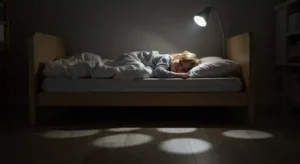Feeling tired? New research shows that delaying school start times helps teenagers get better sleep — improving mood, academic performance, and even road safety. Learn why schools across the country are rethinking early mornings.
Why Later School Start Times Matter
For teens, getting more sleep isn’t a luxury — it’s a biological need. Research confirms that delaying high school start times aligns better with adolescent circadian rhythms, which naturally shift during puberty.
Teens tend to fall asleep and wake up later. When schools start too early, they’re essentially fighting their biology — showing up sleep-deprived, distracted, and stressed.
Proven Benefits of Delaying School Start Times
Extending school start times by even 30 to 60 minutes has a measurable impact:
- 🛏️ More Sleep: Teens gain up to 2 extra hours of sleep per week — a huge improvement for those getting less than 8 hours a night.
- 🚗 Fewer Car Accidents: Better-rested students make safer drivers. Several studies show reduced teen crash rates when schools start later.
- 🧠 Improved Learning: Students show better focus, memory, and academic performance during the day.
- 🧘 Better Mood & Mental Health: Delayed start times are linked to lower depression rates and reduced tardiness or absenteeism.
What the Experts Recommend
The American Academy of Pediatrics recommends that high schools start at 8:30 a.m. or later. However, only about 14% of U.S. high schools follow this guideline. Most still start around 7:59 a.m., out of sync with teenage biology.
Why Advocacy Matters
Want to make a change in your community? The American Academy of Sleep Medicine recommends that parents and educators push for later school times at the district level.
This isn’t just about sleep — it’s about better health, safety, and academic success.
Additional Sleep Tips for Teens
Even with better start times, teens benefit from healthy sleep habits:
- 🕘 Stick to a Sleep Schedule: Go to bed and wake up at consistent times — even on weekends.
- 📵 Wind Down Before Bed: Avoid screens and high-stimulation activities late at night.
- ❄️ Cool Bedroom: Sleep better in a dark, cool room (~65°F or 18°C).
- ☕ Watch the Caffeine: Limit energy drinks and soda in the afternoon or evening.
Conclusion
Later school start times aren’t just a policy issue — they’re a public health solution. By realigning school schedules with adolescent sleep patterns, we can help students sleep better, perform better, and live healthier lives.
Frequently Asked Questions
Do later school start times really reduce car crashes?
Yes. Studies show that better-rested teens are more alert and less likely to get into accidents while driving to school.
Won’t teens just stay up later if school starts later?
Possibly — but they still get more total sleep. Plus, aligning school with natural sleep cycles leads to better energy and mood during the day.
Sources
- American Academy of Pediatrics (AAP)
Policy Statement on School Start Times for Adolescents
https://publications.aap.org/pediatrics/article/134/3/642/73772/School-Start-Times-for-Adolescents Centers for Disease Control and Prevention (CDC)
School Start Times and Sleep Patterns in Teens
https://www.cdc.gov/sleep/features/schools-start-too-early.htmlAmerican Academy of Sleep Medicine (AASM)
Position Statement on Delaying School Start Times
https://aasm.org/resources/pdf/pressroom/schoolstartadvisory.pdfSleep Research Society
Delayed School Start Times Improve Sleep Duration in Adolescents
https://academic.oup.com/sleep/article/40/9/zsx122/4085466Journal of Clinical Sleep Medicine
The Impact of Later School Start Times on Academic Performance and Health
https://jcsm.aasm.org/doi/full/10.5664/jcsm.9350








